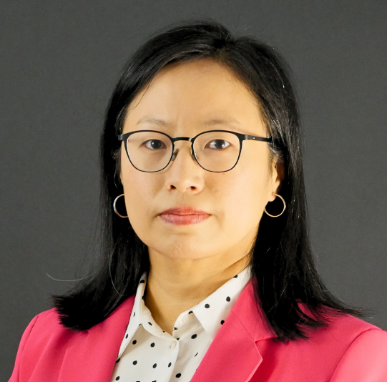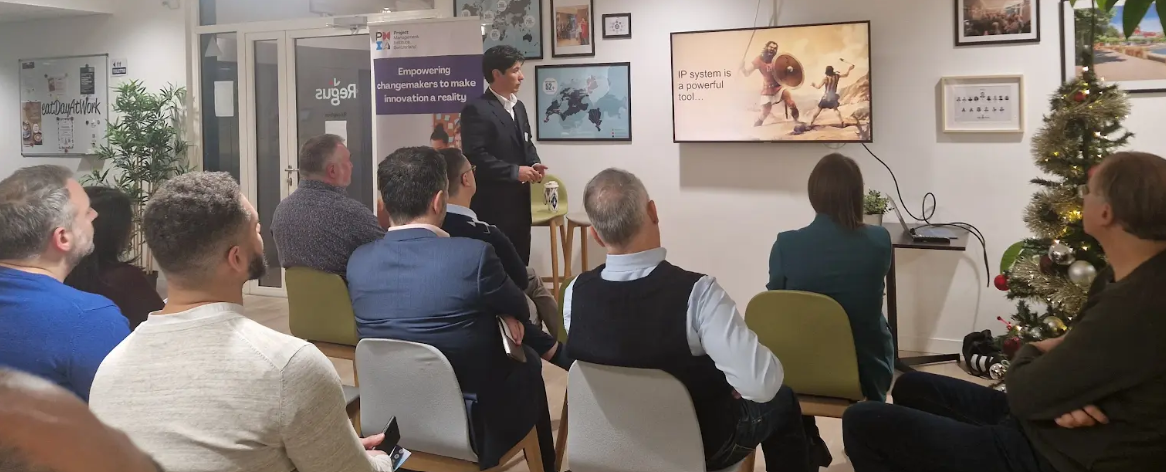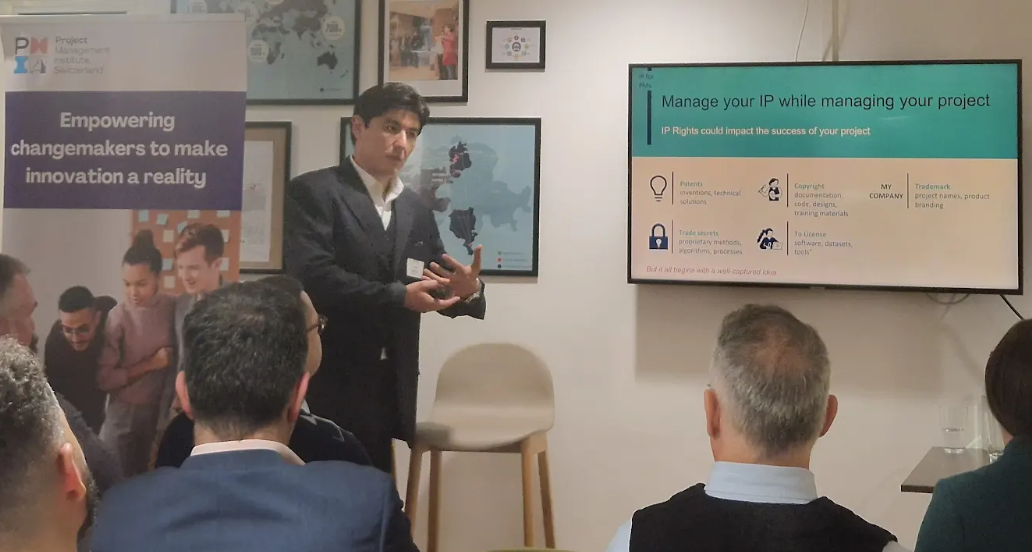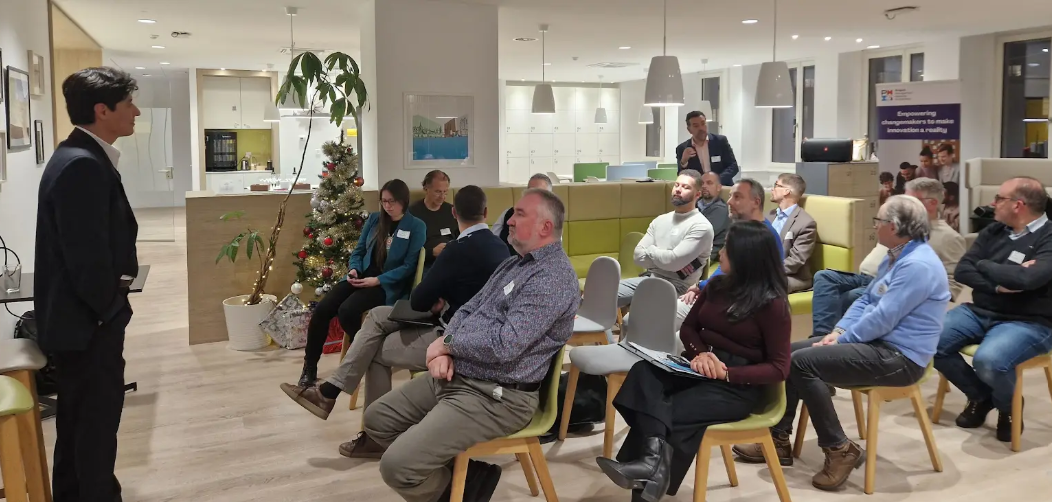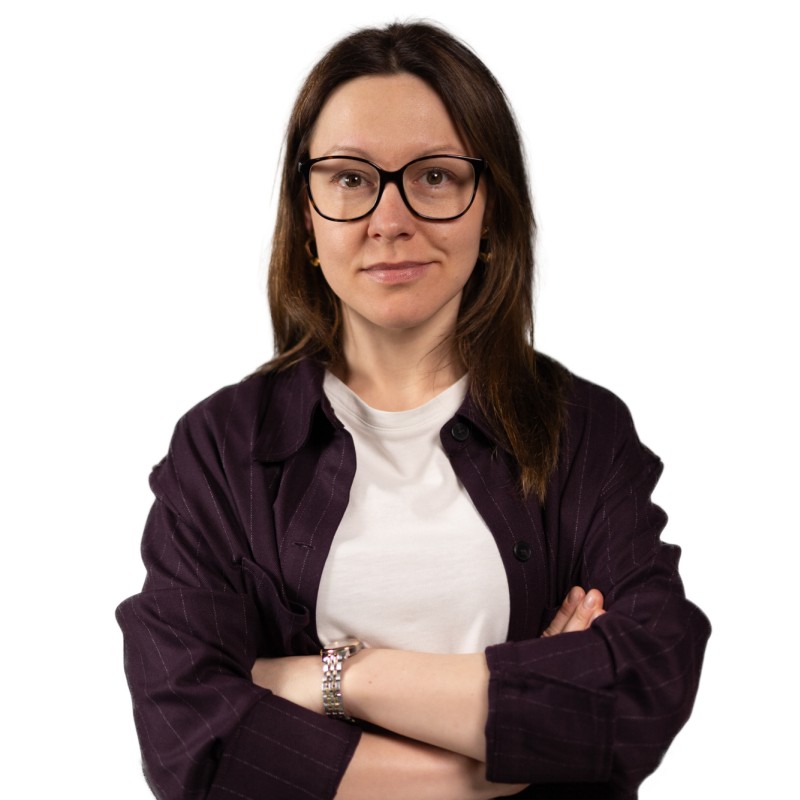
Author: Mariia Fufaieva, PMI Switzerland Anniversary Team
As PMI Switzerland approaches its 25th anniversary, we’re taking a step back to revisit the very beginning. What sparked the idea to start PMI Switzerland? What hopes drove the early team — and what challenges did they face along the way?
In this article, we speak with Dr. Alexander Matthey, PMP, the Romandie team pioneer, who shares personal memories and insights from those early days and reflects on how it all began.

Alex, what first sparked the idea to join PMI Switzerland and establish the Romandie team?
In 2001, I was already a Project Manager with 17 years of experience, the last 5 or 6 full time, with several diplomas / certificates in PM and related matters. I was hungry to learn more, to do better and apply best practices. In most of my employment I was following their methodology, processes and templates, but struggled every time I changed a job or did a new course, learned a new approach. It was hard to transpose my previous experience. The technical breakthrough was at Scala Business Solutions, we were trained in a heavily PMI inspired ERP implementation methodology. I learned about PMI, the PMBOK Guide, and the PM framework. The human breakthrough was that we lacked a likeminded community to share, to learn from each other, to inspire each other with successes based on PMI’s approach, in general in Switzerland, but particularly in Romandie. Then my ex-colleague, Erhard Zingg, from Cap Gemini Ernst&Young contacted me about founding a chapter. Believe me, it was like rain in the desert.

What was the biggest organizational challenge for you?
For about 3 years I was very much alone deploying organizational energy. Some friends and colleagues were coming to help me here and there, for an event, a lunch, a presentation, but no constant support, professional companionship. For liaising with the PMI Switzerland Chapter I was alone, for representing the PMI Switzerland Chapter at PMI Leadership Meetings at congress venues, I was alone.
In the early days, how much of your free time did PMI actually take up?
I just about added a 50% occupation on top of my Orange Telecommunication PMO Manager job. Some of it was admin work, emails, phones and event, some more intellectual, such as presentations on professional PM, on the PMBoK, on PMI as a Worldwide organization, on PM Leadership, some of it networking. Some of it was fun with great colleagues, beautiful minds, dedicated professionals: the Swiss Chapter Board members: Andrea Behrends our 1st President, Erhard Zingg, Martin Härri, James Greene just to cite a few.

What were those first events like: well-organized and focused, or more people moving around and figuring things out on the fly?
Well-organized? Well, I/we aimed to give this impression. However, the truth was we looked like the proverbial duck: calm and gracious above water, pedaling frantically below it. Always something or several things were going wrong, when no reserves in manpower, no way to double check, no extra time, no financial backing. But once I was talking, it was all smooth and nice and easy. It was just flowing, I mastered all the aspects of my topics. Our on the fly arrangement became the hallmark of a project manager working in his professional environment. Some humor and the problems became a reason to engage, to ask for help between old friends – aren’t we all PMs?
When did it first feel like “this is really working”?
Immediately. For two reasons. First, PM is improvisation, so at ease in it, at ease when explaining and popularizing it. Second, being alone there is no room for doubt, for self pity, for trial and error. Just do it and engage others, that’s it. When it became easier you can ask, after about 3 years, when the chapter life became more visible, there were some successes, there was some traction to become a volunteer even around me in Romandie. I could breathe.
What was the funniest or most memorable failure from the early days?
After a successful first Chapter event I launched the second some months later. I invited the same 4 people who helped me to organize the first event. We had our first meeting, agreed on the topic, the timing, the audience, and distributed the roles, then went about working on those. At the second event organization meeting a month later, only one of the four showed up -30 minutes late. Needless to say I was feeling very – very, no idea what. Funny, stressed, disillusioned? I drank 3 soda waters with lemon in 30 minutes to drown my sorrow. But with the colleague in question, Sonia Boutari from Orange, by now retired back to her native Rome, we pulled together our improvisational skills and friendship, helping us stand up a second team. The event was spotless.

Looking back, what achievement makes you most proud today?
Over the 7 years I was involved with the PMI Switzerland chapter in various roles, Romandie grew at double the rate of the Swiss German part. For 20% of the population we had 50% of the events, about 40% of the member numbers, and about 45% of PMP certified professionals in Switzerland. It pleases me to think, and my colleagues tell me the same: I stood firm alone against 5 other board members. The effort is locked in similar numbers even today.
If you could give one piece of advice to today’s PMI Switzerland volunteers, what would it be?
Although pioneering is not really possible today, as we are well oiled now, there is always room for improvement, introducing new ideas, covering new fields both in a PM area or in Leadership. The good thing is volunteering allows professionals to develop skills which may be denied as an opportunity in corporate life at the time when one is ready. No one can stop a focused PMI volunteer. It can save 10 years of corporate ladder climbing to be a recognized PMI volunteer for 3 or 4 years. And the comradery and fun with it, is priceless.
Join us on 6 March to celebrate the 25th milestone of the community!
Register today to meet Chapter pioneers in person, to learn more about the early days of PMI Switzerland.

